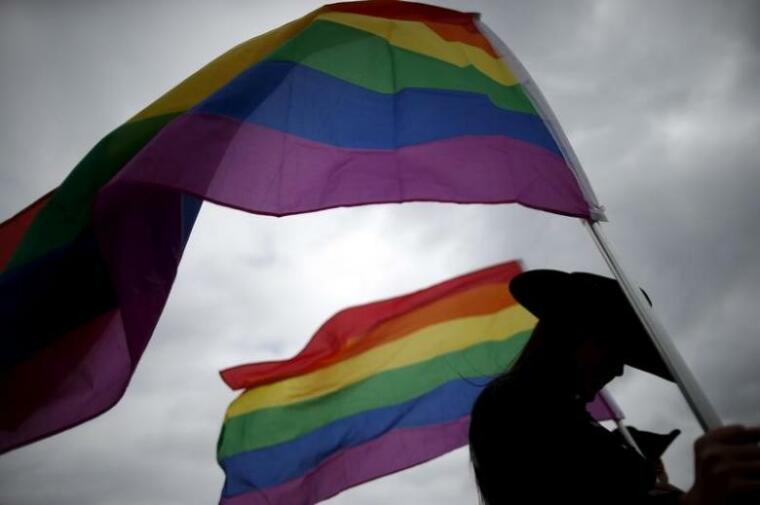Arkansas Supreme Court strikes down Fayetteville's LGBT anti-discrimination ordinance

The Arkansas Supreme Court has struck down an ordinance that prohibits discrimination against LGBT people in the city of Fayetteville.
The ruling on Thursday reversed a lower court decision that the city's anti-discrimination ordinance did not violate a state law that prevents cities and counties from extending non-discrimination protections beyond the classes that are identified at the state level.
Fayetteville voters approved the ordinance in 2015 to defy Act 137, which became law that same year after the Arkansas legislature approved it and Gov. Asa Hutchison took no action on the measure.
The law essentially prohibits cities from enacting anti-discrimination measures against LGBT people as the Arkansas civil rights code does not include protections for sexual orientation or gender identity.
The Supreme Court ruled that the state civil rights law was the controlling statute, and the city ordinance could not stand because it created a direct inconsistency between state and municipal law, Reuters reported.
The court stated that the ordinance "violates the plain wording of Act 137 by extending discrimination laws in the city of Fayetteville to include two classifications not previously included under state law."
"This necessarily creates a nonuniform nondiscrimination law and obligation in the city of Fayetteville that does not exist under state law," the court added.
However, the court did not rule on the constitutionality of the state law since it was not addressed by the lower court. The case was returned to the Washington County judge that ruled in favor of Fayetteville's ordinance.
Attorney General Leslie Rutledge, who asked the court to uphold the state law, said she was grateful for the ruling. She noted that Arkansas' law required "discrimination protection be addressed at the state level and be uniform throughout the state."
Fayetteville City Attorney Kit Williams disagreed with the ruling and vowed to challenge the law's constitutionality in the lower court.
"They can't, by not using express terms, accomplish the same result which is truly what their intent was, which was to prevent the city from enacting protections for its gay and lesbian residents," Williams said about the Legislature's passage of the 2015 law, as reported by The Associated Press.
 Christians don't have to affirm transgenderism, but they can’t express that view at work: tribunal
Christians don't have to affirm transgenderism, but they can’t express that view at work: tribunal Archaeology discovery: Medieval Christian prayer beads found on Holy Island
Archaeology discovery: Medieval Christian prayer beads found on Holy Island Presbyterian Church in America votes to leave National Association of Evangelicals
Presbyterian Church in America votes to leave National Association of Evangelicals Over 50 killed in 'vile and satanic' attack at Nigerian church on Pentecost Sunday
Over 50 killed in 'vile and satanic' attack at Nigerian church on Pentecost Sunday Ukrainian Orthodox Church severs ties with Moscow over Patriarch Kirill's support for Putin's war
Ukrainian Orthodox Church severs ties with Moscow over Patriarch Kirill's support for Putin's war Islamic State kills 20 Nigerian Christians as revenge for US airstrike
Islamic State kills 20 Nigerian Christians as revenge for US airstrike Man who served 33 years in prison for murder leads inmates to Christ
Man who served 33 years in prison for murder leads inmates to Christ


 Nigerian student beaten to death, body burned over ‘blasphemous’ WhatsApp message
Nigerian student beaten to death, body burned over ‘blasphemous’ WhatsApp message 'A new low': World reacts after Hong Kong arrests 90-year-old Cardinal Joseph Zen
'A new low': World reacts after Hong Kong arrests 90-year-old Cardinal Joseph Zen Iran sentences Christian man to 10 years in prison for hosting house church worship gathering
Iran sentences Christian man to 10 years in prison for hosting house church worship gathering French Guyana: Pastor shot dead, church set on fire after meeting delegation of Evangelicals
French Guyana: Pastor shot dead, church set on fire after meeting delegation of Evangelicals ‘Talking Jesus’ report finds only 6% of UK adults identify as practicing Christians
‘Talking Jesus’ report finds only 6% of UK adults identify as practicing Christians Mission Eurasia ministry center blown up in Ukraine, hundreds of Bibles destroyed: 'God will provide'
Mission Eurasia ministry center blown up in Ukraine, hundreds of Bibles destroyed: 'God will provide' Church holds service for first time after ISIS desecrated it 8 years ago
Church holds service for first time after ISIS desecrated it 8 years ago Burger King apologizes for 'offensive campaign' using Jesus' words at the Last Supper
Burger King apologizes for 'offensive campaign' using Jesus' words at the Last Supper Uganda: Muslims abduct teacher, burn him inside mosque for praying in Christ’s name
Uganda: Muslims abduct teacher, burn him inside mosque for praying in Christ’s name